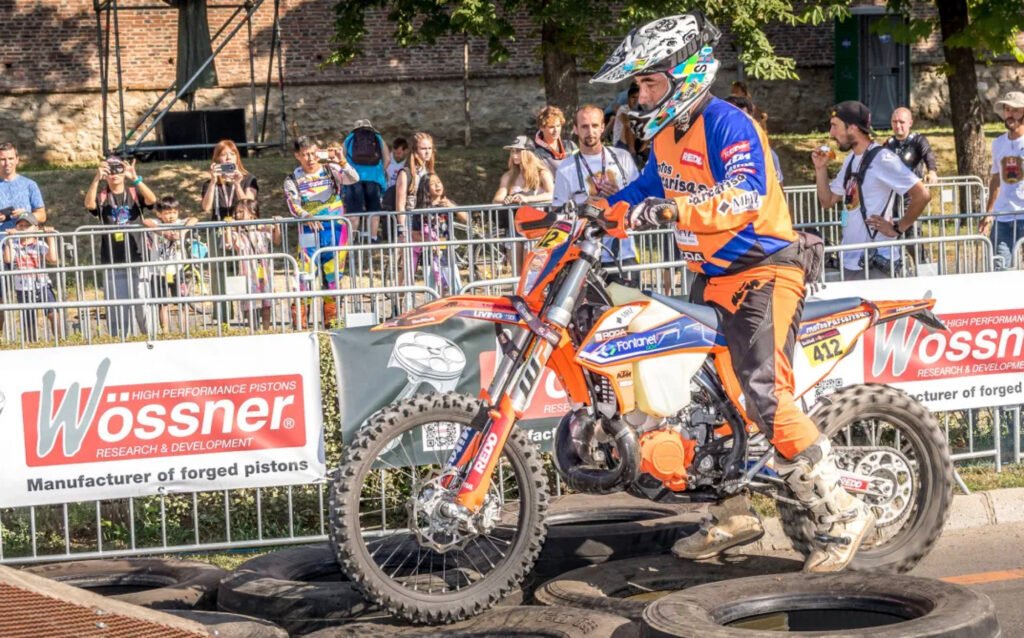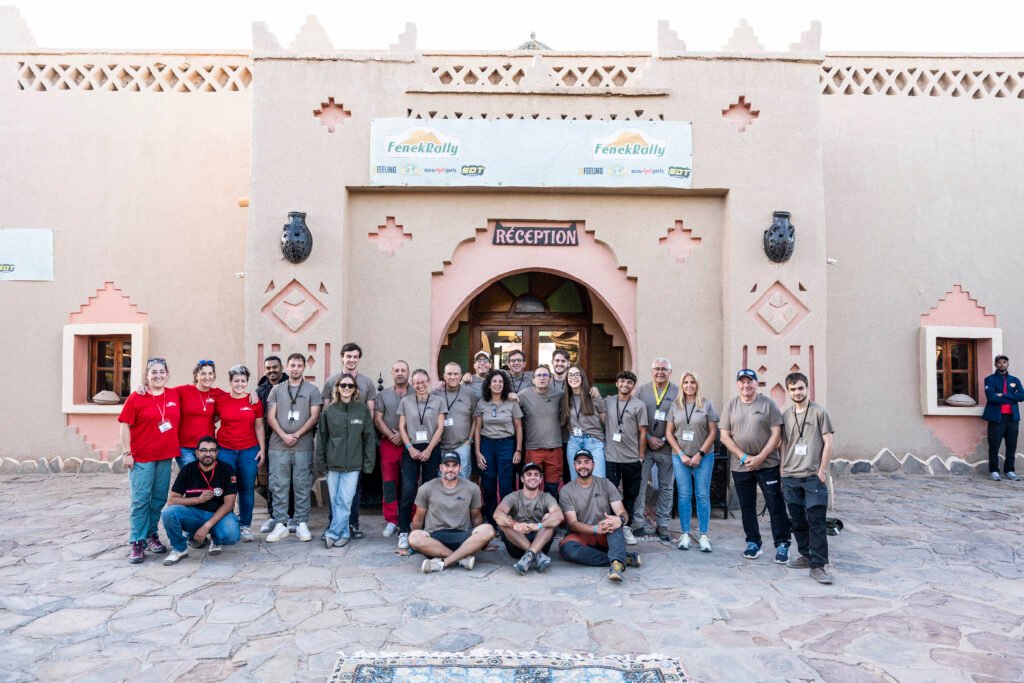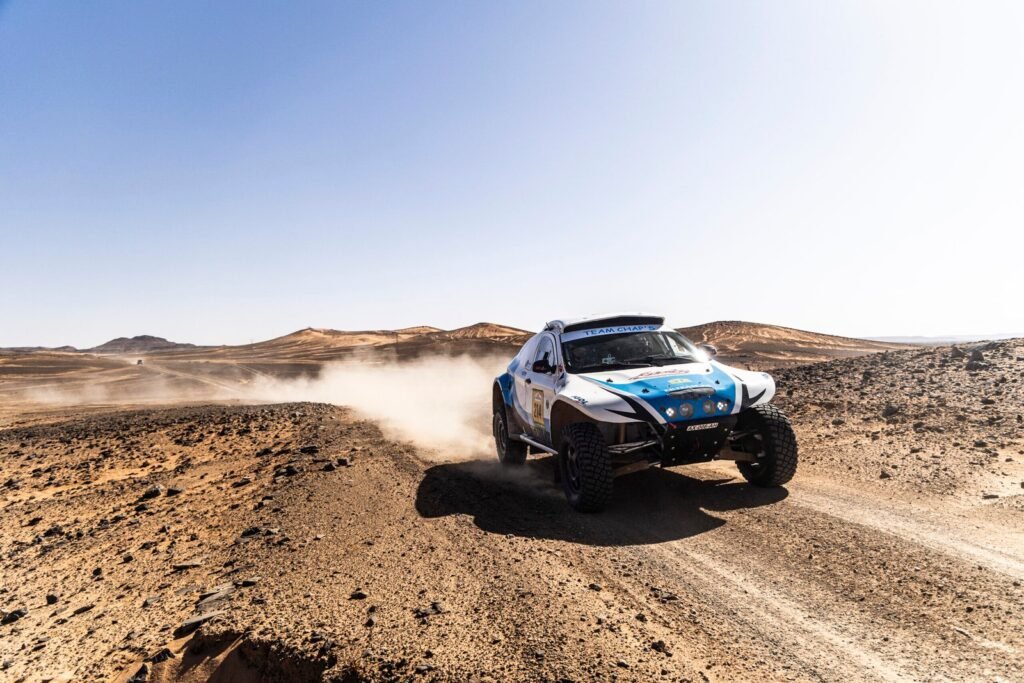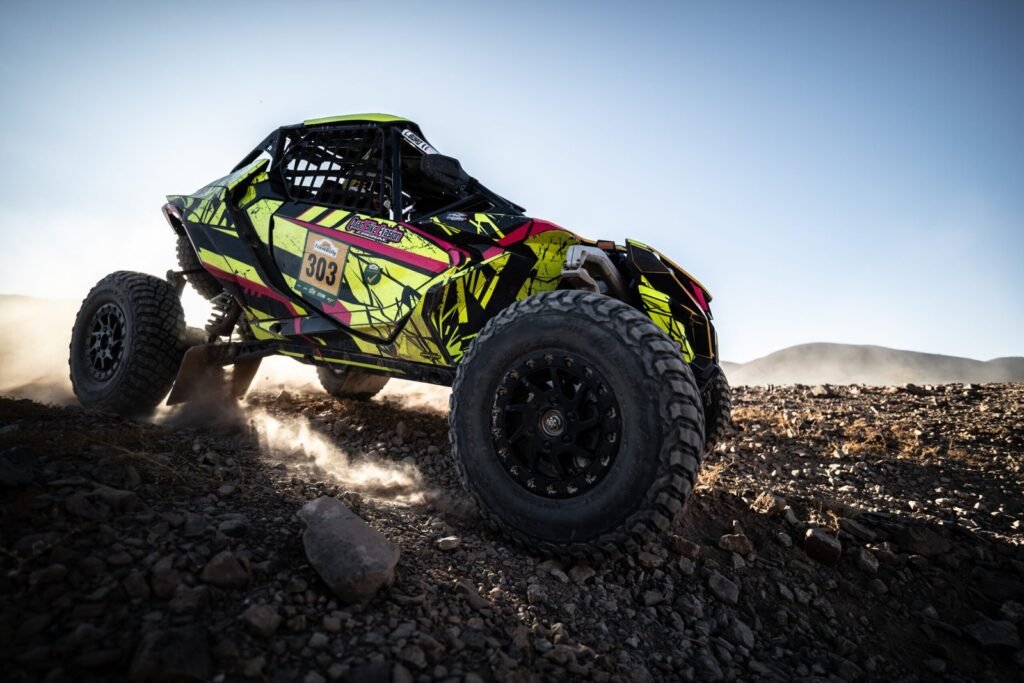The Spanish driver prepares for the November edition and shares what it means to live (and organize) the offroad adventure.
He’s written many stories, wheels in the mud, heart in the desert. A Spanish driver with a rich and versatile background, Jordi Esteve Oro has experienced the world of rally-raids from every angle: inside and outside the cockpit (and even on a motorcycle). His career has been forged through countless kilometers, sand and extreme navigation, with the Dakar Rally as the ultimate testing ground.
But Esteve is not just a driver, he’s also the mind and soul behind Rodibook, a motorcycle event that celebrates roadbook navigation through the breathtaking landscapes of the Pyrenees. It has become a must-attend event for more than 1,500 two-wheel enthusiasts from across Europe.

In November, Jordi will be back in action at the FenekRally, driving a Side by Side, alongside navigator Quico Pardo. The goal? To further strengthen their teamwork ahead of the 2026 Dakar Rally.
We spoke with him to learn more about his story, his vision of today’s rally-raids, and why -after so many years- he’s still searching for that perfect blend of technique, effort and freedom.
©Vandrei Stephani. Red Bull Romaniasc
Hi Jordi, what drew you to the world of offroad and rally-raid?
Since I was a kid, I’ve always been fascinated by the world of racing, especially off-road. I started by competing in Enduro races on a motorcycle and immediately fell in love with the adrenaline and the sense of freedom that the sport offers. That’s where my passion was born, and it’s still with me in every adventure today.
You’ve competed in many Dakar Rallies: what makes each edition unique?
Honestly, I’ve almost lost count! I’ve experienced Dakar from every perspective: once as a motorcycle mechanic, three editions as a rider, one as a truck co-driver, two driving an assistance truck, and finally, six years as an official truck driver. Each edition is different, but they all leave you with something deep. It’s a long journey, filled with challenges, emotions, and constant growth.
How do you prepare physically and mentally for such a long and demanding race?
I train regularly to improve my driving control, using kart cross and Side by Side vehicles. For physical preparation, I do a lot of mountain biking and Enduro riding. It’s a combination that helps me stay reactive and focused, even in the most extreme situations.
How has the world of rally-raid changed since you started?
It’s no secret: back in the day, Dakar was much more adventurous. We covered far more kilometers, with less technical difficulty than we see now. Today, the stages are shorter but much more technical. Personally, I still prefer the spirit of the old Dakar, more authentic and more unpredictable.
Motorcycles, trucks, SSV: which vehicle represents you the most?
That’s a tough choice because I’m equally passionate about all of them. In the end, anything with wheels and an engine excites me. Every vehicle has its own character and challenges, and each one has given me something different.
Is it easier to be a driver or an event organizer? Rodibook, which you’ve organized for many years, is now a key event for bikers. What does it mean to you?
Organizing Rodibook is incredibly rewarding. Every year, we offer over 1,500 motorcyclists a weekend dedicated to roadbook navigation. My goal is to make them feel like they’re experiencing a real Dakar stage. It’s not easy, but seeing the passion and enthusiasm around the event makes it all worthwhile.
What led you to sign up for the FenekRally, and what do you expect from this edition?
The main reason is that, even though it’s an amateur race, FenekRally is organized to a very high standard. For me and my co-driver Quico Pardo, it will be an excellent training opportunity for Dakar 2026. The quality of the event allows us to test our teamwork and preparation in a competitive yet accessible setting.
What stood out to you about the philosophy of FenekRally? More adventure, less show?
What I appreciate most is the atmosphere, it reminds me of the early Dakars in Africa, where adventure was the focus and the camaraderie among participants was real. That’s what makes FenekRally special: less spectacle, more substance.
What vehicle will you compete with?
A Yamaha 1000 SSV. Unfortunately, due to scheduling conflicts, we won’t be able to compete with our Dakar truck. But it will still be a great training opportunity for future challenges.
FenekRally is considered more “accessible” than many other events: do you think this approach represents the future of this sport?
Absolutely. FenekRally has already become a benchmark in the rally-raid world, and it keeps growing and improving each year. I believe it will become a key stepping stone for those seriously preparing for Dakar, but in a more accessible and human context. This is the right direction to help the sport grow.



